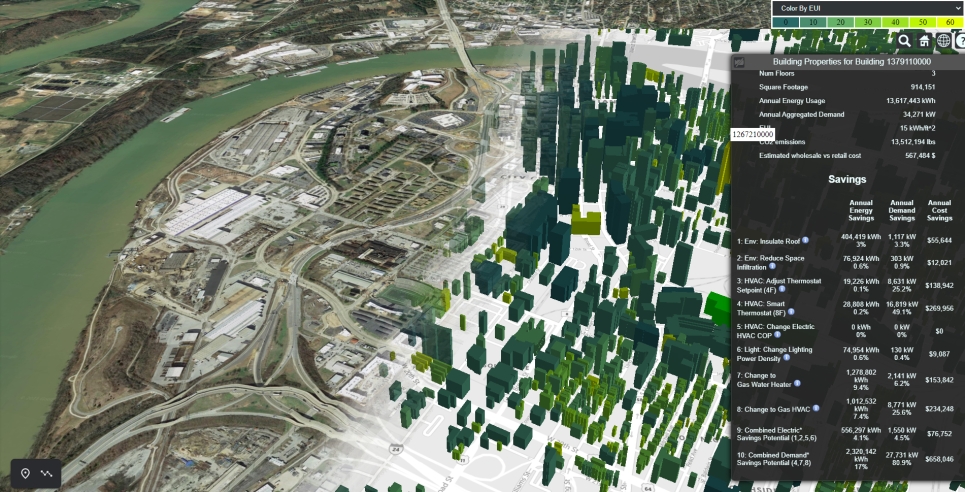
U.S. Department of Energy’s INCITE program seeks proposals for 2023
The INCITE program is aimed at large-scale scientific computing projects that require the power and scale of DOE’s leadership-class supercomputers.
The U.S. Department of Energy’s (DOE’s) Innovative and Novel Computational Impact on Theory and Experiment (INCITE) program is seeking proposals for high-impact, computationally intensive research campaigns in a broad array of science, engineering and computer science domains. The deadline to apply is June 17, 2022.
INCITE’s open call provides an opportunity for researchers to pursue transformational advances in science and technology through large allocations of computer time and supporting resources at the Argonne Leadership Computing Facility (ALCF) and the Oak Ridge Leadership Computing Facility (OLCF). Both are DOE Office of Science user facilities located at Argonne National Laboratory and Oak Ridge National Laboratory, respectively.
“The goal of the INCITE program is to accelerate scientific discoveries by supporting compute- and data-intensive projects that can only be carried out at a DOE leadership computing facility,” said Katherine Riley, INCITE's project manager and director of science at ALCF. “Our unique combination of supercomputing resources, high-performance storage and networking capabilities, and in-house expertise puts us in a position to facilitate some of the most innovative and complex research campaigns involving simulation, data and AI approaches.”
Open to researchers from all institutions – including those from academia, industry and government agencies – the INCITE program focuses on large-scale scientific computing projects that require the power and scale of DOE’s leadership-class supercomputers. The program will award up to 60% of the allocatable time on Summit, the OLCF’s 200-petaflop IBM AC922 machine; Polaris, the ALCF’s 44-petaflop HPE Apollo Gen 10+ system; and Theta, the ALCF’s 12-petaflop Cray XC40 system. Proposals may also request time on the facilities’ coming exascale systems, Frontier (OLCF) and Aurora (ALCF).
In addition to seeking traditional simulation-based projects, the call for proposals is open to projects that involve applications in the areas of data science, such as big data and data-intensive computing; and machine learning like deep learning, neural networks and reduced models for scientific data. Crosscutting proposals targeting the convergence of simulation, data and learning are also encouraged.
“INCITE provides researchers computational resources and access to expertise on those resources that simply can’t be found anywhere else,” said ORNL’s Bronson Messer, who is OLCF’s director of science. “The projects selected for INCITE awards represent the mission of our supercomputing facilities in a tangible way: enabling the most demanding and unique uses of computation for scientific discovery.”
Proposals will undergo a peer-review process to identify projects with the greatest potential for impact and a demonstrable need for leadership-class systems to deliver solutions to grand challenges. Additionally, applications will be evaluated for computational readiness to determine how effectively each proposed project will use the requested systems.
INCITE is also devoting 10% of its allocatable compute time in 2023 to an Early Career Track. Now in its second year, the program aims to encourage the next generation of high performance computing researchers by focusing on principal investigators who have earned a doctorate degree within the last 10 years. To be eligible, early career applicants must have received their doctorate degree on or after December 31, 2012. Applicants’ project proposals will go through the regular INCITE Computational Readiness and Peer Review process, but the INCITE management committee will consider meritorious projects in the Early Career Track separately.
To submit an application or for additional details about the proposal requirements, visit the INCITE website: https://www.doeleadershipcomputing.org.
Proposals are now being accepted through 8:00 p.m. EDT on Friday, June 17, 2022. Awards are expected to be announced by November 2022.
Preparing for INCITE
The INCITE program will host instructional proposal writing webinars on May 3 and June 3, 2022. To register, visit https://www.doeleadershipcomputing.org/proposal/informational-webinars/
To achieve computational readiness, INCITE applicants are encouraged to apply for Director’s Discretionary allocations at the ALCF and at the OLCF.
In addition, the ALCF’s upcoming Computational Performance Workshop is designed to help attendees boost application performance and work toward computational readiness for INCITE. For details, visit: https://www.alcf.anl.gov/events/2022-alcf-computational-performance-workshop
==========
The Argonne Leadership Computing Facility provides supercomputing capabilities to the scientific and engineering community to advance fundamental discovery and understanding in a broad range of disciplines. Supported by the U.S. Department of Energy’s (DOE’s) Office of Science, Advanced Scientific Computing Research (ASCR) program, the ALCF is one of two DOE Leadership Computing Facilities in the nation dedicated to open science.
Argonne National Laboratory seeks solutions to pressing national problems in science and technology. The nation’s first national laboratory, Argonne conducts leading-edge basic and applied scientific research in virtually every scientific discipline. Argonne researchers work closely with researchers from hundreds of companies, universities, and federal, state and municipal agencies to help them solve their specific problems, advance America’s scientific leadership and prepare the nation for a better future. With employees from more than 60 nations, Argonne is managed by UChicago Argonne, LLC for the U.S. Department of Energy’s Office of Science.
The U.S. Department of Energy’s Office of Science is the single largest supporter of basic research in the physical sciences in the United States and is working to address some of the most pressing challenges of our time. For more information, visit https://energy.gov/science.
